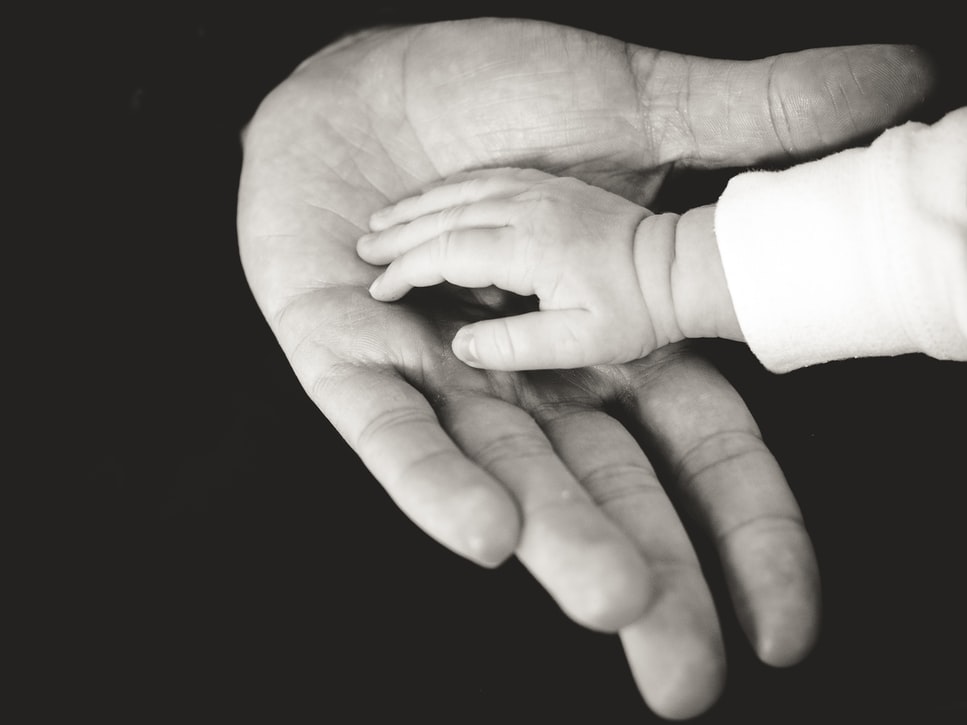
The government’s daily announcement of deaths caused by the Coronavirus has prompted many of us to think about death and our mortality in a way we may not have done before. Tragically, many families will have been affected directly by the loss of a family member and many of us will know somebody who has been seriously ill as a result of contracting the virus. For children, coming to terms with the death of a family member is especially difficult and even hearing about the tragic death of hundreds of people every day may bring up questions and concerns about death, which parents often struggle to know how to answer.
In this article, we’ll give you some information on talking to children about death, so you can be prepared for any questions.
Keep it simple
When we talk about death as adults, we often use euphemisms in an attempt to ‘soften’ death, instead of straight, simple talking. When talking to children about death, the received wisdom is that it’s important to avoid euphemisms like ‘went to sleep’ or ‘passed away’, since children can find them confusing. Don’t be afraid to use words like ‘dead’ or ‘died’. Marie Curie suggests that it is important to be honest and open when discussing death with children since the reality is often less troubling than their imagination. The charity also suggests that it is important to explain in clear and simple language to children, that is appropriate for their age and experience, and to give them information in small and manageable amounts at a time.
When talking about Coronavirus, for example, it might be better to explain that it’s an illness from which the vast majority of us will recover, but that a small minority of people, especially those who are vulnerable because they are older or already ill, may not survive. Giving children practical solutions that can help keep them (and others) safe, like washing their hands, may also help to make them less anxious about the Coronavirus and illness in general.
Make it age appropriate
How parents go about explaining death will largely depend upon the age of the child. A toddler will obviously require much less detail than a teenager, for example, and may not understand that death is permanent.
Child Bereavement UK suggests telling a child as soon as possible, in a place where they can be supported and away from distractions.
Try not to overload your child with lots of information all at once. Explain what happened and be guided by the questions they ask.
The charity suggests answering those questions honestly, reassuring children that they are not in any way to blame, explaining that different feelings and reactions to death are OK and letting them know that adults in their life are there to help with the process.
Cruse Bereavement Care has a large amount of helpful information available to assist with understanding how children are likely to view death at different ages and what is appropriate to tell them at different stages in their development.
Answer their questions – but don’t be worried about saying ‘I don’t know’
Your child may have a lot of questions, particularly if someone in your family or circle of friends has died. Be ready to answer their questions and encourage them to ask them. Child Bereavement UK suggests if you don’t know the answer to a question, don’t be afraid to admit this to them. Being open and honest about death sometimes involves admitting that we don’t know all the answers.
Reassure and support your child
When someone dies, it’s normal for a child (and indeed an adult) to worry that it was their fault in some way or they could have somehow stopped it. Reassure your child that this is not the case. Let them know that what they are feeling now – and indeed the Coronavirus pandemic – will eventually pass.
Grieve together
It can be tempting to hide your grief from your child. However, it is generally accepted that letting them see you grief, will let them know that being sad when someone dies is OK and there’s no need to pretend otherwise.
Finally, there is no ‘normal’ way to grieve. Some children will be quieter. Others will seem unaffected. By talking to them in a simple, age-appropriate manner and answering their questions whenever they arise, you can help them to start to deal with what has happened and begin to move on.
Neil Graham, a Partner at Grayfords, comments as follows: “Losing a loved one is immensely challenging for all of us and especially so for children. The process of coming to terms with that loss can be a slow, and sometimes lifelong, process. Working together as parents if you can, even if you are separated, to support your children in that process will be crucial to their development. There is a lot of excellent and helpful information available from a number of charities to support parents in that process.”
https://www.childbereavementuk.org/telling-a-child-that-someone-has-died
https://www.cruse.org.uk/get-help/for-parents/childrens-understanding-of-death

